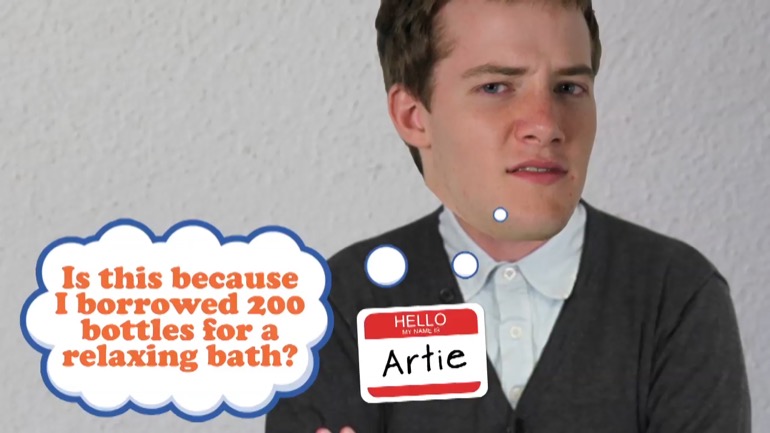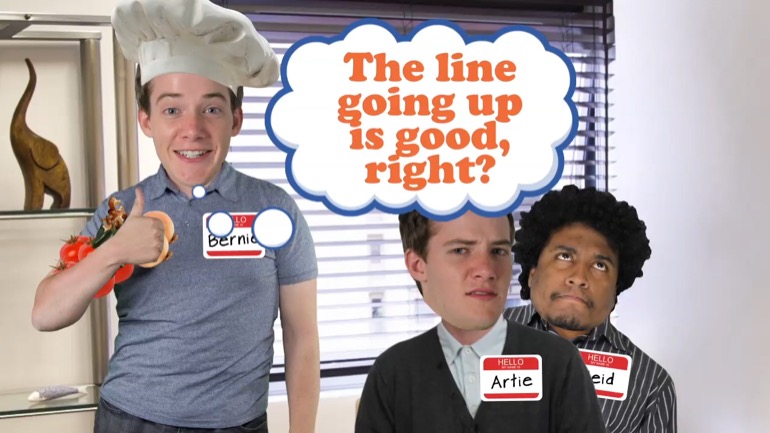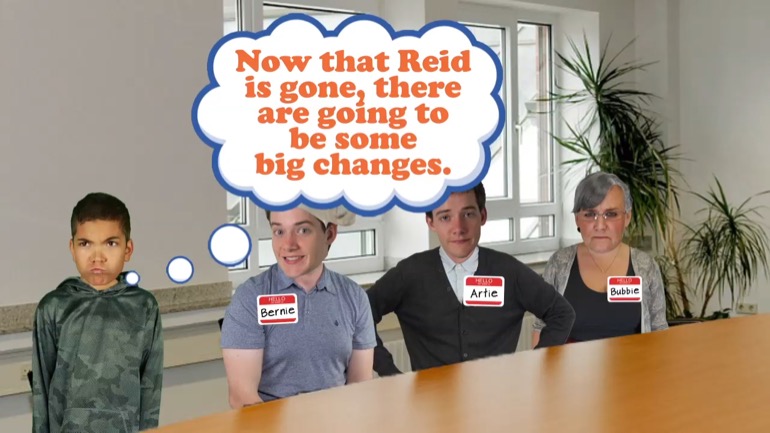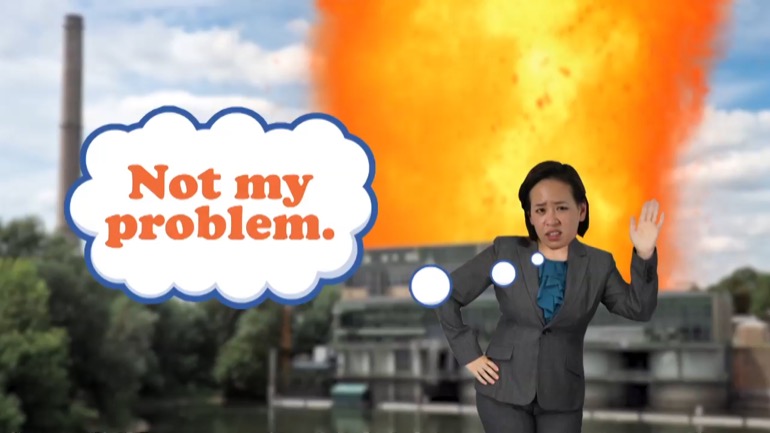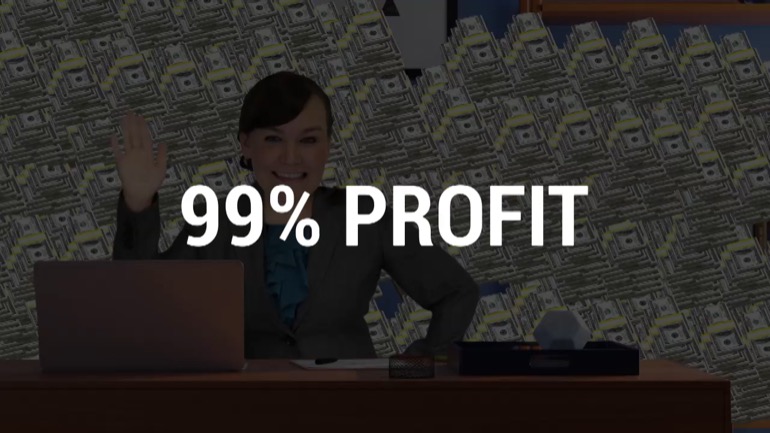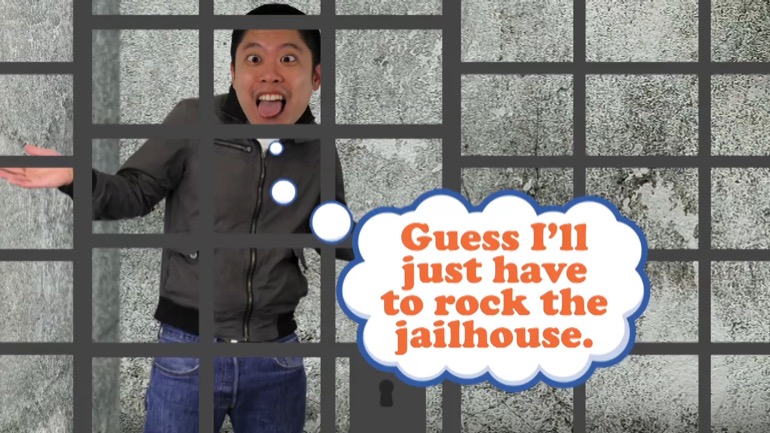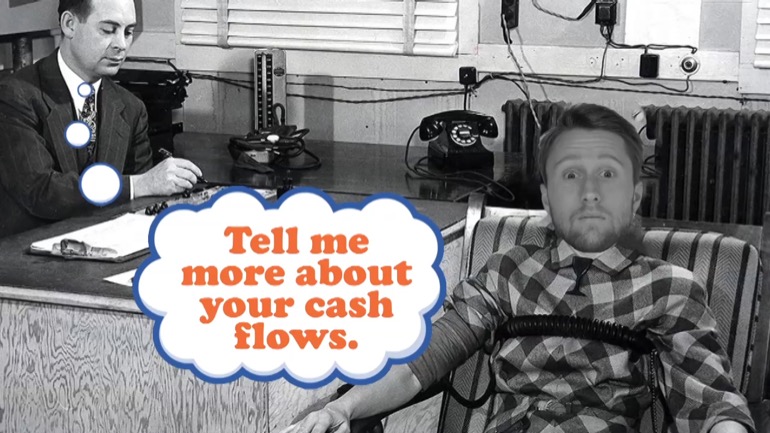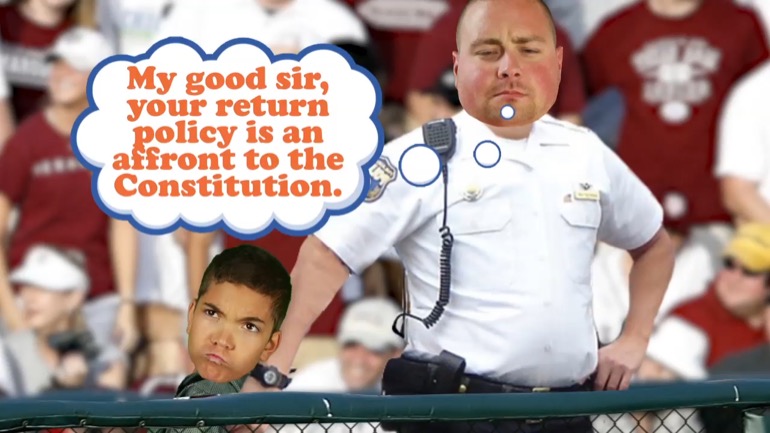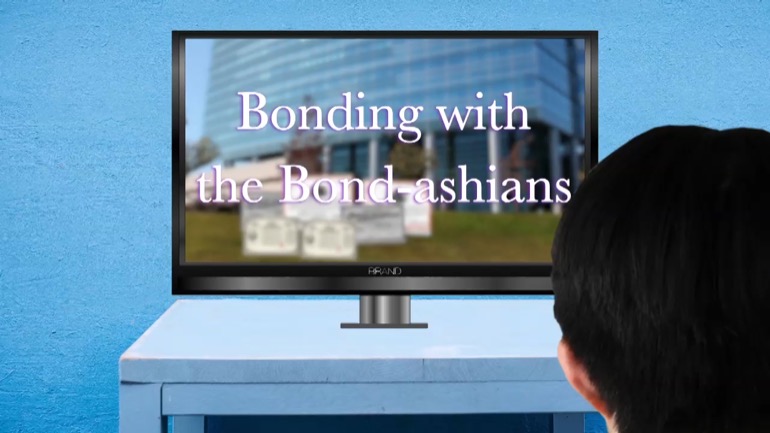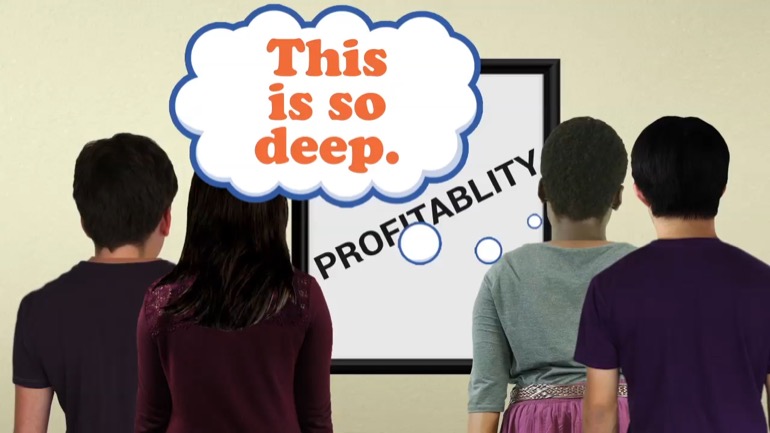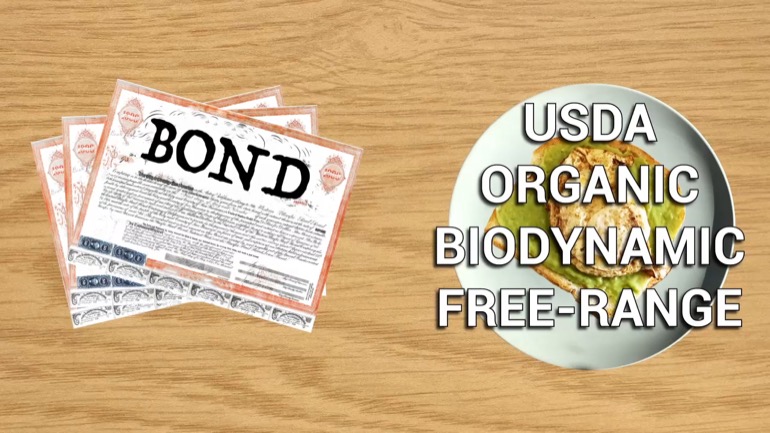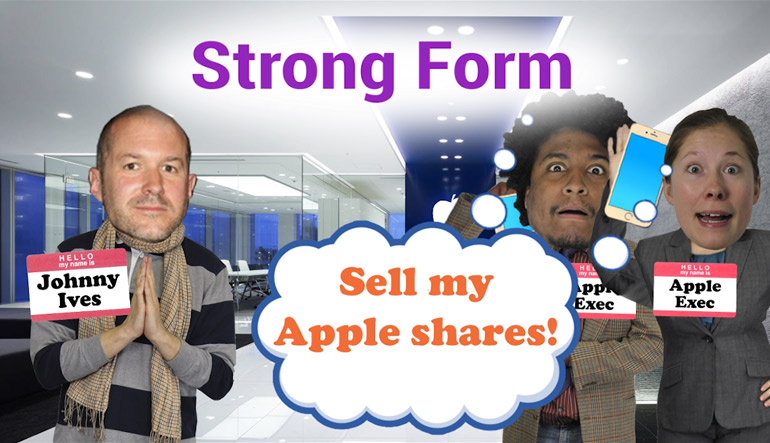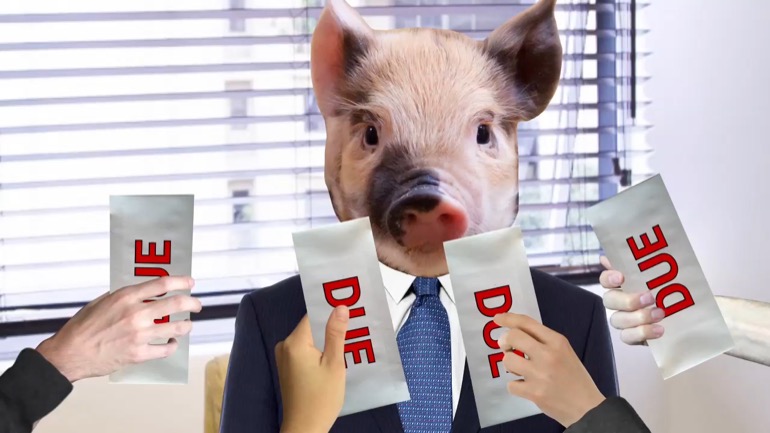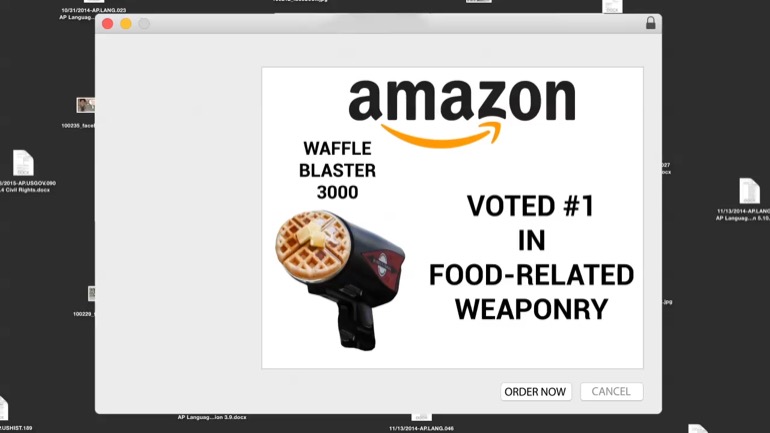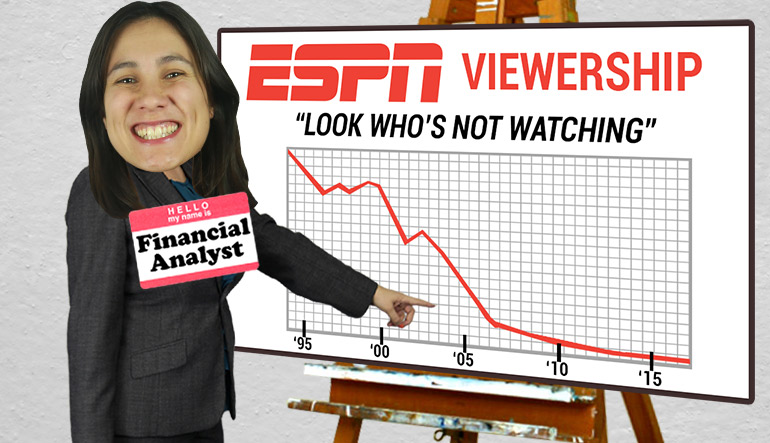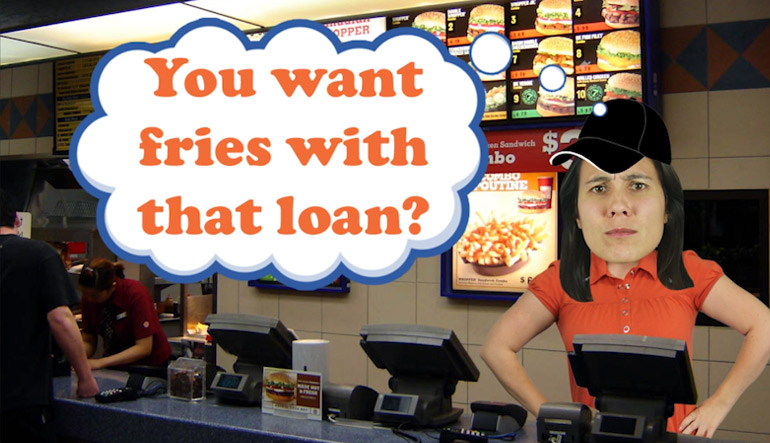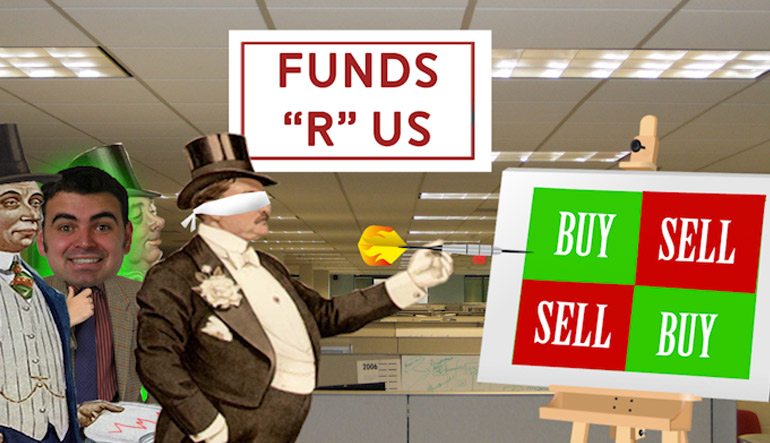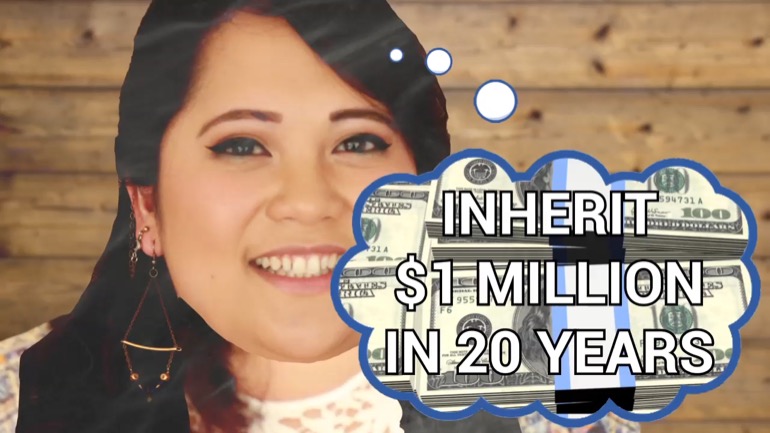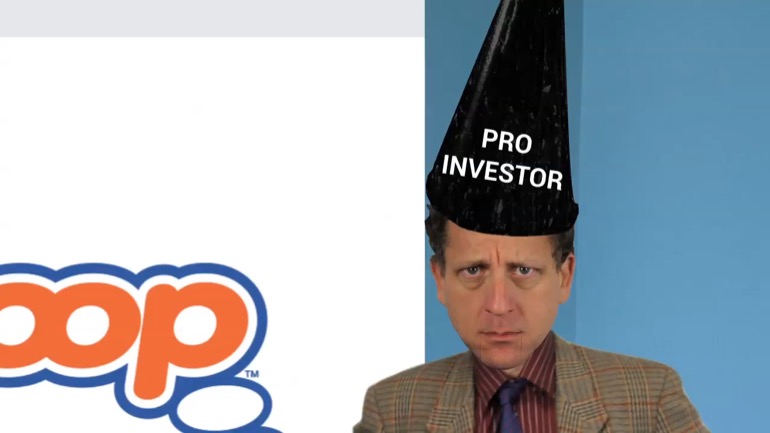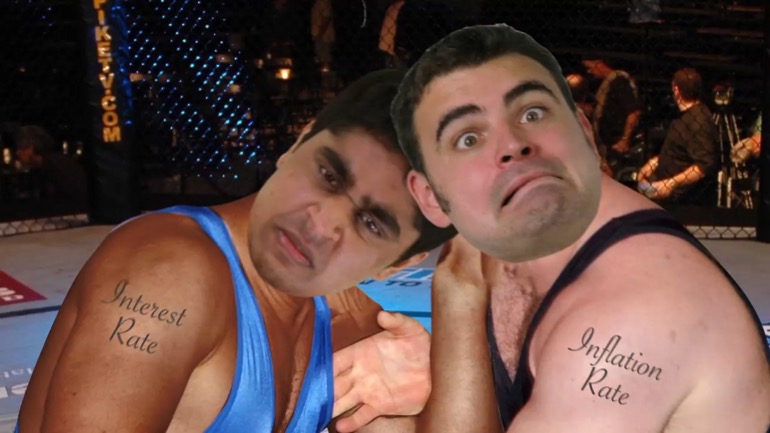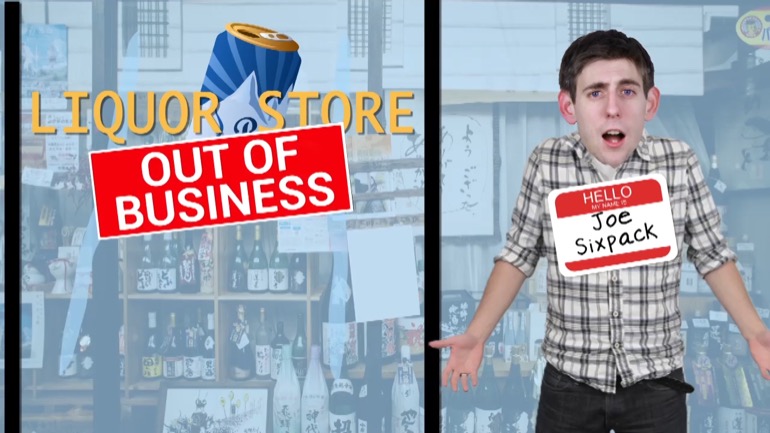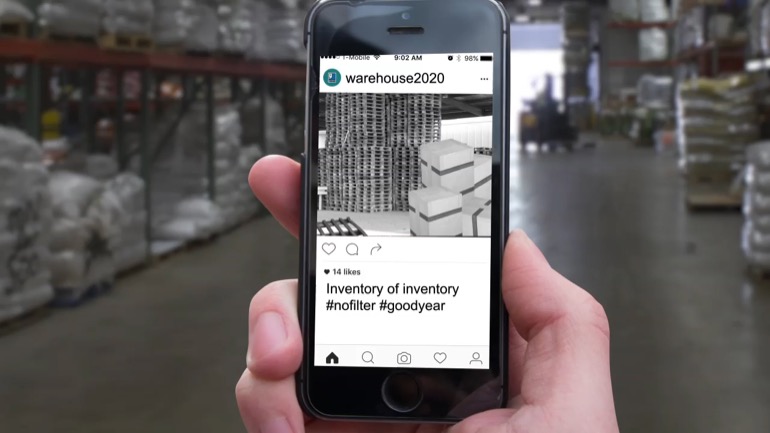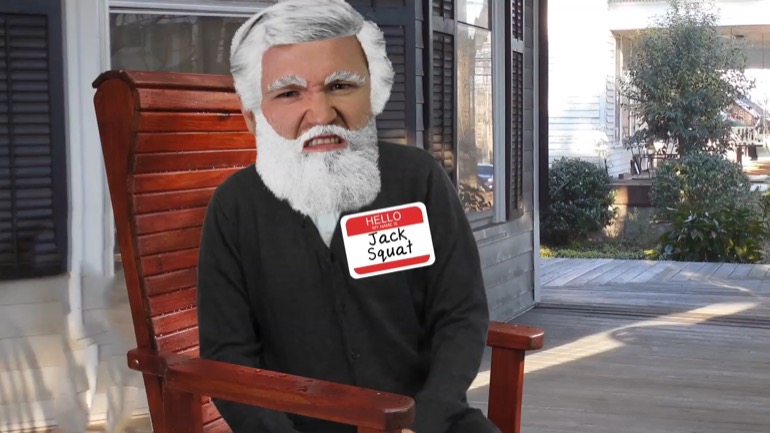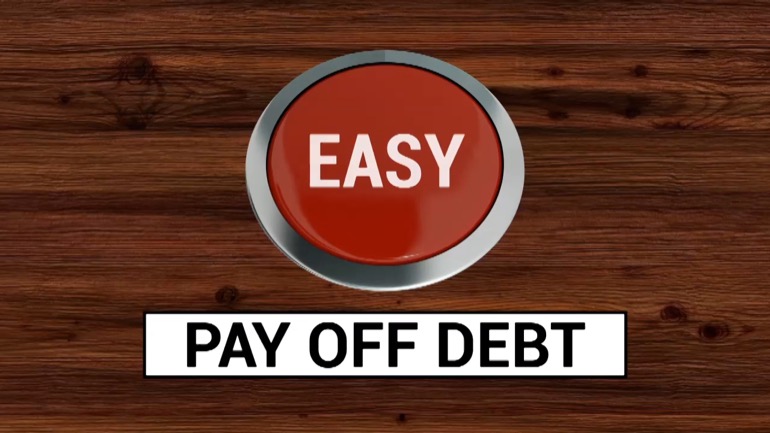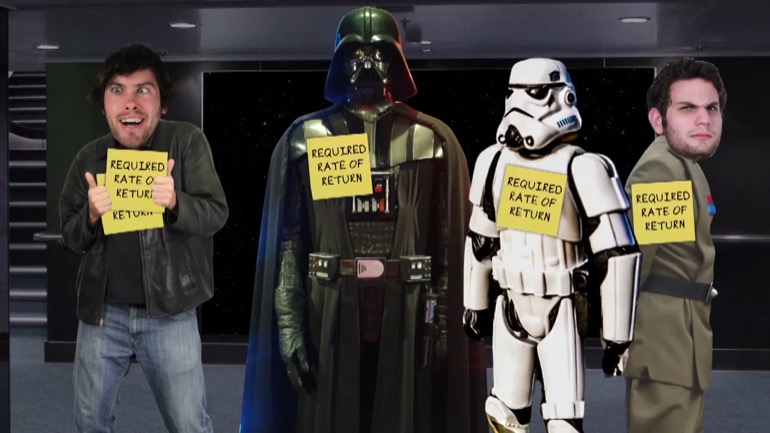ShmoopTube
Where Monty Python meets your 10th grade teacher.
Search Thousands of Shmoop Videos
Principles of Finance Videos 166 videos
How is a company... born? Can it be performed via C-section? Is there a midwife present? Do its parents get in a fight over what to name it? In thi...
Company Formation, Structure, and Inception: Unit Intro. Sorry, Leo DiCaprio fans—we're not going to be breaking down the plot of Inception. We'r...
Okay, so you want to be a company financial manager. It's basically up to you to make money for the shareholders. It would also be swell if you mad...
Principles of Finance: Unit 5, How Bonds are Called - or Put 19 Views
Share It!
Description:
When you call a bond, you (a company) are basically buying a bond back. When you put a bond, you (a bondholder) are selling it back to the company.
Transcript
- 00:00
Principles of finance a la shmoop how bonds are called or put...[Person picks up suitcase and replaces with new suitcase]
- 00:08
Want to win the lottery without dropping the dough on like a zillion
- 00:12
tickets buy a call provision you know most call provisions have a lottery
- 00:17
provision... okay so this is not about going
- 00:21
to 7-eleven and paying 2 bucks to the state's tax collection system because [Man carrying bags full of lottery tickets]
Full Transcript
- 00:25
like nobody ever wins those things do they rather a lottery in this sense
- 00:29
refers to random numbers being assigned to individual series of bonds which make
- 00:36
those bonds callable by the issuer at some point between when the bonds were [Money transfers from phone to bonds]
- 00:41
issued and when the cash is collected by the company and when the bonds are fully
- 00:45
paid off the big idea here is that calling a bond means that the original
- 00:50
issuer is buying it back like hello bond 8675 309 I'm calling you I want you [Man calling for bond back]
- 00:57
back please come back all right that is they return the cash to the
- 01:01
investor who originally bought the bond plus interest and usually a small
- 01:05
premium paid above the par value of the bond to reward the investor for of a
- 01:10
hassle and you know that the bond then is considered paid off and done okay so [Bond stamped paid]
- 01:15
let's say 20% of the outstanding bonds of whatever.com can be called after
- 01:19
three years and then another 20% can be called after six years and so on until
- 01:25
the whole thing's retired well the company had a banner year finding itself [Fireworks in the sky]
- 01:28
with a ton of cash on its books at the end and having already acquired all of
- 01:32
the corporate jets it wanted well the company decided to spend its remaining
- 01:36
cash available by calling its outstanding bonds back home to the [Alien spacecraft picking up people from the city]
- 01:40
mothership all right so what's that process like calling back your bonds
- 01:44
well if the company wants to call them they spin the wheel of fortune and
- 01:47
called lucky winners and losers remember there's lottery tickets or lottery [Person calling on a mobile]
- 01:51
numbers associated with each bond paying each chosen bondholders something like a
- 01:56
hundred and three cents on the dollar like a three percent premium here
- 02:00
whatever it said in the paperwork when the bond was originally issued that the
- 02:04
call premium would be should the bonds be called early well they do that they
- 02:09
pay a thousand thirty bucks and retire the debt okay [Person hands over a check]
- 02:13
if bond rates are high today and you're a bond fund portfolio manager well
- 02:18
you're gonna want some protection, like if you buy someone's bonds which yield
- 02:22
say 8% today but then what if the bonds are callable next month at par, or a
- 02:28
hundred cents on the dollar and you're paying a hundred three cents on the
- 02:32
dollar to buy those bonds that supposedly will be yielding eight
- 02:35
percent forever and ever but then they get called in a month or a year or less [Person picks up telephone]
- 02:39
than that well then you have what's called call risk so imagine a scenario
- 02:43
where you've just paid a thousand thirty dollars for $1,000 par bond that in
- 02:47
theory pays you 80 dollars a year in interest for the next ten years and you
- 02:51
feel good about its risk default meaning that you trust that the bonds will you [Man giving presentation on call risk]
- 02:56
know fully pay off fully down line but then since the bond has no call [Telephone rings]
- 03:01
protection and interest rates suddenly plummet and the company can refinance
- 03:05
the bonds elsewhere cheaper well, just one month later before even having paid
- 03:09
semiannual interest the bonds you just paid a thousand thirty for each are
- 03:15
called and well legally and you're kind of screwed you must surrender them for a [Person calling on a mobile]
- 03:19
thousand dollars each you just lost three percent in a month nice job! To
- 03:24
avoid such a calamity you'll want call protection like the
- 03:27
company issuer of the bond agrees that it won't call these bonds for at least
- 03:31
four years so time can pass and you can collect at least some interest along the
- 03:35
way and if they do get called well then the company will pay a hundred three [Sticky note lands on 1 dollar bill]
- 03:39
cents on the dollar or a hundred ten cents on the dollar or hundred twenty cents
- 03:42
on the dollar to buy them back or something like that
- 03:44
it's called protection so you don't end up losing money on your bonds and note [Money on fire]
- 03:48
that if the company issuing ever wants to buy them back even if there's no call
- 03:52
provision it can it's called tendering yeah the company tenderly gently asks if
- 03:59
people would kindly like to sell it back their used debt they tenderly do this [Man with company briefcase for a head waving]
- 04:04
that's why it's called tendering the company just tiptoes into the open
- 04:07
market and tenderly offers whatever the market price is for those bonds like a
- 04:13
hundred two dollars and seventy three cents or something like that like at a
- 04:16
2.7% premium and if there are any suckers out there who want
- 04:19
to sell the company there are perfectly nice eight percent coupon bonds for
- 04:23
ninety six cents on the dollar well then fine it'll go ahead and buy them back
- 04:26
thank you very much wow this sounds apocalyptic but most bond investors are [Apocalyptic city up in smoke]
- 04:30
a relatively dismal dark crowd to start with so the nomenclature fits; bond
- 04:35
buyers just want to get paid back their interest and their principle and then go
- 04:40
home and pray an errant airplane does not hit their house. Fittingly most bonds [Airplane in the sky, plummets and explodes]
- 04:45
carry a yield to worst tag instead of a yield to call that is at worst like if
- 04:52
my bond is called in the first tranche of potential lottery calls what will be
- 04:57
the lowest or worst yield I'll get from this point forward on my investment
- 05:02
Here's another twister when bonds are called
- 05:05
early they usually carry that premium we mentioned specifically if a bond is
- 05:10
callable at 1:02 any time well what does that mean well bonds trade in
- 05:14
denominations of $1,000 right so what is 102 here right we said it's 2% premium
- 05:19
so that would be the bond is callable for a thousand 20 let's say we've paid a
- 05:25
thousand dollars for a bond yielding 8% and we hold it exactly 4 years
- 05:29
collecting 80 dollars a year in interest each year and after 3.8 years we get a
- 05:34
nasty little email saying thank you very much for your investment that we paid [E-mail from investment to bond buyer]
- 05:38
you 8% a year in rent for money now we're gonna buy back that bond after 4
- 05:42
years not letting it go to its full decade long duration sorry pal and for
- 05:46
the privilege of buying it back we'll pay you a thousand $20 or a 2% call
- 05:50
premium to retire those now very expensive-looking 8% bonds when we know
- 05:54
we could refinance with someone else and rent money today at only 5%
- 06:01
So, if we went back to the beginning of our investment well the yield to worst was [A stack of 100 dollar bills]
- 06:05
in fact 80 plus 80 plus 80 plus 80 plus 20 plus a thousand or 1340 returned over
- 06:12
4 years that's cumulative total the yield ended up being a bit more than 8%
- 06:17
but you can imagine situations where the nominal rate was a very high relative to [Nominal rates value increase on a graph]
- 06:22
market conditions number and investors paid 1,200 bucks for a bond callable
- 06:27
four years later at a thousand twenty well they could have ended up tying up
- 06:31
their money for four years renting it to other people and actually losing money
- 06:35
it would be like renting your apartment not cashing the check for four years and [Apartment 4 rent sign on a block of apartments]
- 06:39
then realizing that all the checks that you would have cashed bounced yeah that
- 06:43
would not be good all right well we just outlined what a call provision looks
- 06:46
like the right for the company to buy back the bond or call it home to the
- 06:51
mother ship so then what on earth is a put well is
- 06:54
it the right of a company to force you to buy a bond...No, but that would make for [Man with company briefcase for head holding a baseball bat]
- 06:59
a really great reality TV show the put option is given to the holder of the
- 07:03
bond the holder has the right to put the bond back to the company usually at a [Bond holder puts bond to the company]
- 07:09
preset price and usually at a discount to the principle price right so it's
- 07:14
kind of the inverse of a call so the bonds of whatever dot-com might have had
- 07:17
to have had this extra feature in order for cautious buyers of their bonds to be [Person slowly picks up a bond]
- 07:22
enticed to buy them why is a put appealing to cautious buyers, well
- 07:27
because the buyers then legally have the right to get their money back after what
- 07:32
is essentially a small bond restocking fee...A put provision might have said
- 07:37
something like puttable anytime after four years at 96 so that means [bond yields transfer to company]
- 07:43
that owners of the bond could force the company after four years to buy back
- 07:47
their bond for ninety six cents on the dollar or nine hundred sixty bucks for
- 07:51
that thousand dollar par value bond well why would a company offer such a great
- 07:55
deal to investors in its bonds well it would offer it if it had to and
- 08:00
pretty much only if it had to to entice them to buy that is in order to get the [Lots of people walking fast]
- 08:04
deal done to attract enough buyers to actually get the bond offering to you
- 08:08
know happen well they'd have to offer a put the belief in this case by the
- 08:12
buyers is that the company will still be solvent or at least solvent enough so
- 08:16
that in four years if everyone who owns these bonds wants to sell them back to
- 08:20
the company at ninety six cents on the dollar nine hundred sixty bucks four
- 08:24
thousand dollar principal bond that the company will have the dough or access to [Stacks of money in a vault]
- 08:27
it via other debt it would issue in place you know to buy back those bonds
- 08:32
that the investors in them have put back to the mothership....Here's
- 08:36
hoping but hey well even if the odds aren't a hundred percent that you make a
- 08:39
nice return on your bond investment well they're a whole lot better than the
- 08:43
upcoming mega zillion Powerball ...[Road advert for the powerball]
Related Videos
GED Social Studies 1.1 Civics and Government
What is bankruptcy? Deadbeats who can't pay their bills declare bankruptcy. Either they borrowed too much money, or the business fell apart. They t...
What's a dividend? At will, the board of directors can pay a dividend on common stock. Usually, that payout is some percentage less than 100 of ear...
How are risk and reward related? Take more risk, expect more reward. A lottery ticket might be worth a billion dollars, but if the odds are one in...




